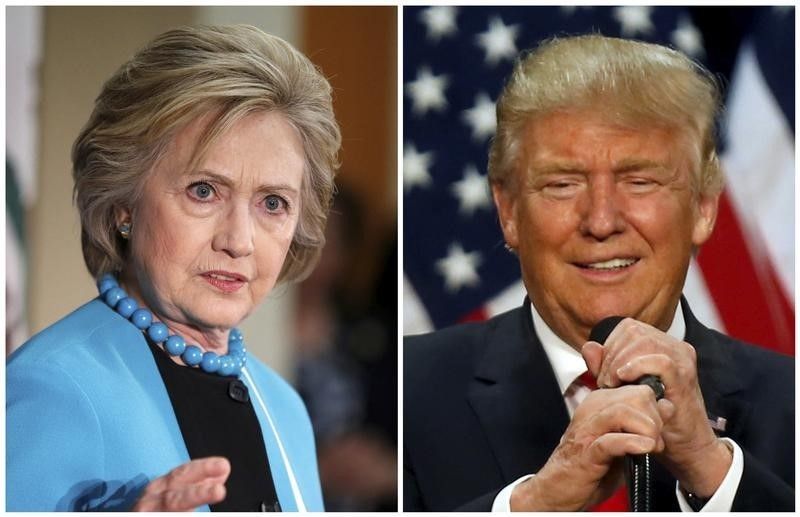
This article first appeared on the Cato Institute site.
As we enter the summer of Crump (or Trinton, take your pick), many Americans are unsatisfied with the two-party oligopoly that has produced the two most unpopular presidential candidates in modern memory.
While some of these will nevertheless hold their noses and pick whomever they see as the "lesser evil," others can't fathom pulling that proverbial lever.
Of these, some are gravitating toward Governor Gary Johnson and look forward to becoming part of what will likely be the best showing for a Libertarian Party candidate. Still, others are less enamored with Johnson, so, like Bill Kristol at his Rolodex, are hoping for an as-yet unannounced candidate of whatever ideological stripe.
Not to rain on anybody's parade, but as a lawyer—or at least someone who plays a lawyer on TV—I have to ask the question of whether this is even legally possible (forget the political and financial practicalities).
During the primary season, when Donald Trump was lumbering toward the GOP nomination, we heard nervous #NeverTrumpers discussing ballot-access deadlines in Texas and elsewhere.
And indeed, the Lone Star State's deadline for an independent candidate to collect and file the requisite signatures—79,939 for those counting at home—came and went on May 9. We're now past seven other states' deadlines, with a further six being hit this week. These 13 states account for 178 of the 538 electoral votes, and include red, blue and purple states.
(There are separate, generally earlier deadlines for so-called "minor" parties, but I'll stick to analyzing the rules for independent candidates because the logistics of having a theoretical white knight "take over" an existing third party with already-qualified ballot access are even more complicated.)
Then 17 more state deadlines arrive by August 2, accounting for 168 more electoral votes. That means that we are now three weeks away from an independent candidate's being mathematically prevented from winning an Electoral College majority—though of course at that point Twelfth Amendment scenarios are still in play.
Or does it mean that? I haven't yet researched this deeply, but I've read enough to know that there are colorable legal arguments to be made that these state ballot-access laws—signature thresholds, due dates, verification procedures, etc.—violate the First Amendment right of free association and, to the extent they privilege the major parties, the Fourteenth Amendment's Equal Protection Clause. (Interestingly, in election-law-related litigation, the Libertarian Party's interests are sometimes aligned with the big two, and sometimes against them.)
The putative independent candidate or his/her supporters would likely have standing to force federal courts to resolve such constitutional questions.
Of course, the states would argue that their ballot-access laws serve a compelling interest in orderly election administration and related concerns: there have to be procedures in place so states can prepare the ballots and prevent fraud.
The Supreme Court's ruling Anderson v. Celebrezze (1983) governs when weighing the rights of voters and candidates against such state interests. There, the court rejected the use of any "litmus-paper test" for separating valid from invalid restrictions. Instead, there's a holistic balancing test—so nobody can tell you off the bat what's legally kosher and what's not.
But regardless, the Anderson court ruling noted that a state's interest in regulating presidential elections is less important because the outcome of that election "will be largely determined by voters beyond the State's boundaries" and "the pervasive national interest in the selection of candidates for national office…is greater than any interest of an individual State."
As a practical matter, ballot-access challenges would involve battles-of-the-experts, with both sides relying on political scientists to explain why the balance tilts in their favor.
The challengers' experts would discuss the practical and financial hurdles associated with gathering signatures; the unusual 2016 election cycle where the major parties didn't settle on presumptive nominees until late May/early June; and argue, for example, that a 5,000-signature requirement (not 80,000 or Florida's 119,316) and a deadline of Sept. 1 (or September 9, as the three latest states currently have it) is adequate to further the state's interest in keeping "frivolous candidates" off the ballot while still providing members of the public an opportunity to associate with like-minded people. (Richard Winger of Ballot Access News has done yeoman's work in this area.)
At its core, the argument is one about fundamental fairness, so should appeal to Sandernista Democrats as much as #NeverTrump Republicans. In an election cycle where most Americans would rather vote for someone other than the nominees of the two major parties, it just might work as a legal strategy. And an argument that the ballot box rather than ballot-access rules should dictate voters' choices could well resonate as a matter of political messaging.
All this depends on whether a worthy nominee can be found, perhaps by Better for America, an organization working to find an attractive independent candidate and enable such a campaign.
I'm not saying that I'd vote for whoever emerges from this woodwork—or that I will or won't vote for Gary Johnson, or write in someone else—but it's an intriguing idea that's worth exploring in this crazy political year.
Ilya Shapiro is a senior fellow in constitutional studies at the Cato Institute and editor-in-chief of the Cato Supreme Court Review. Before joining Cato, he was a special assistant-adviser to the Multi-National Force in Iraq on rule-of-law issues and practiced at Patton Boggs and Cleary Gottlieb.
Uncommon Knowledge
Newsweek is committed to challenging conventional wisdom and finding connections in the search for common ground.
Newsweek is committed to challenging conventional wisdom and finding connections in the search for common ground.





